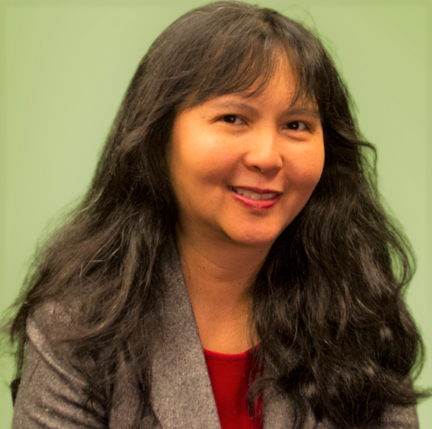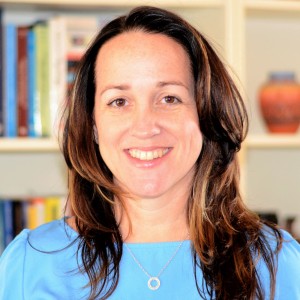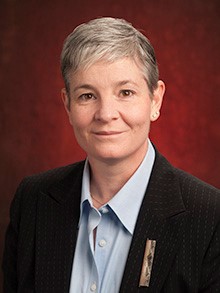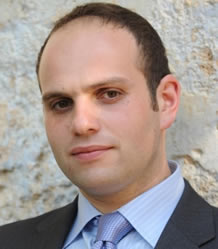The mentoring session for graduate students and early career scholars will be held from 1:00-2:30 on Friday April 28th. Prominent health communication scholars will be available to discuss research and career advancement with early career scholars one-on-one or in small groups. Topics of discussion may include but are not limited to: How to start a research program? How to collaborate with others? How to take advantage of available resources, such as public data, to advance one’s research agenda? What kind of skills are in high demand in the current job market? How to transition from graduate school to employment either in the academia or elsewhere? How to balance life and work in a new job? Other topics of interest to the mentees can also be discussed.

Iccha Basnyat
Iccha Basnyat is an Associate Professor in the Global Affairs Program, and holds a joint appointment in the Department of Communication. Dr. Basnyat received her B.A. in Communication from the University of Utah, MPH from the University of Massachusetts-Amherst, and Ph.D. in Communication from Purdue University with emphasis on health communication. Dr. Basnyat taught in the Department of Communication & New Media at the National University of Singapore for a decade as well as in the School of Communication at James Madison University before joining Mason. Read more.
 Maria Leonora “Nori” Comello
Maria Leonora “Nori” Comello
Maria Leonora “Nori” Comello is an Associate Professor at the School of Journalism and Media at the University of North Carolina at Chapel Hill. Her research focuses on health communication, identity/culture, digital media, and engagement with under-served groups. She is currently a co-investigator on an NIH-funded project that is testing a digital health intervention to guide decision-making about the COVID-19 vaccine among young Black adults in three states. Other recent work examines race and other identity cues embedded in portrayals of people with mental health concerns, as well as the role of video gameplaying in supporting the values and well-being of cancer survivors. Her theoretical work includes a model describing the moderating and mediating roles of identity in behavior-influence efforts; more recently (and drawing on her experiences leading DEI initiatives at her school), she highlights the shared frameworks of health comm and DEI, with calls to include the evaluation of DEI programming as a key area of health communication research. She is on the editorial boards of Journal of Health Communication: International Perspectives, Games for Health, Frontiers in Communication, and Communication Monographs. From the mentoring perspective, she encourages graduate students to connect their research with their passions, to seek/build multiple networks of support, and to enjoy the journey.

Carla L. Fisher, Ph.D.
Carla L. Fisher, Ph.D., is an Associate Professor at the University of Florida with affiliations in the College of Medicine, UF Health Cancer Center, and Center for Arts in Medicine. Her work focuses on helping patients, caregivers, family members, and clinicians engage in health-promoting communication at home and in clinical settings. Her primary area of expertise is in family-centered psychosocial oncology care in disease coping, caregiving, and risk reduction. She is also an expert in lifespan-narrative qualitative approaches to developmentally targeting and implementing interventions. Her research collaborations have secured more than $12 million in funding from federal and private funders including NIH, PCORI, and The Leukemia & Lymphoma Society. She has 98 peer-reviewed publications including the only evidence-based book providing mothers and daughters with developmentally tailored guidance on breast cancer coping and caregiving. She’s been an invited expert with renowned cancer centers like Mayo Clinic and Memorial Sloan Kettering.
 Elisia L. Cohen
Elisia L. Cohen
Elisia L. Cohen earned her Ph.D. in Communication from the University of Southern California Annenberg School for Communication and Journalism. Prior to joining the University of Minnesota as Director and tenured Professor in the Hubbard School of Journalism and Mass Communication she served as the Gifford Blyton Endowed Professor and chaired the University of Kentucky Department of Communication and led its Health Communication Research Collaborative.
Dr. Cohen began her career at Saint Louis University, rising through the ranks as she developed innovative media and community-based outreach strategies to improve cancer prevention and detection behaviors in underserved communities. At the University of Minnesota, she partners with medical and behavioral scientists at the Masonic Cancer Center and Center for Translational Science Institute to enhance quality of personally-relevant and culturally targeted communication strategies to improve cancer and related health outcomes.
At the University of Kentucky, she was awarded the campus Sarah Bennett Homes Award in recognition of her leadership, research, and service. She also was recognized with the American Public Health Association’s 2016 Mayhew Derryberry Award, and the 2018 Dale E. Brashers Distinguished Mentor Award from the Health Communication Division of the National Communication Association while a faculty member at Minnesota.
Her research has been supported by the Centers for Disease Control and Prevention, National Institutes of Health, and private industry. Her research on media reporting and public understanding of disease has appeared in journals such as: Health Communication, Health Education and Behavior, Journal of Applied Communication Research, Journal of Broadcasting and Electronic Media, Journal of Communication, Journal of Communication in Healthcare, Journal of Health Communication, Qualitative Health Research, and Prometheus. She has edited four volumes of Communication Yearbook.
She is currently the treasurer of the International Communication Association, board member of the Minnesota Newspaper Association Foundation, and past president of the board for National Scholastic Press Association/Associated Collegiate Press.
 Kathryn Greene, Ph.D.
Kathryn Greene, Ph.D.
Dr. Kathryn Greene is a professor in the Department of Communication at Rutgers University where her research focuses on health communication especially with underrepresented and/or stigmatized groups. One aspect of her research explores how cancer patients manage their health interactions, especially how patients make choices about what information they share with others. She has also conducted a series of prevention studies including how to increase cancer screening and also to decrease cancer linked risk behaviors. In conducting this research, Dr. Greene partners with community groups and patients to maximize the usability of the research. Examples of this type of engaged research include working with AIDS service organizations to develop an HIV disclosure intervention and with 4-H for an online media literacy program targeting adolescent substance use behaviors such as smoking, vaping, and alcohol use. Dr. Greene’s research has been funded by NIH, and she has appointments with the Rutgers CINJ and the School of Public Health.

Sunny Kim, Ph.D.
Dr. Kim is a health communication scholar by degree, with extraordinary training in health communication, behavioral medicine and psychosocial oncology, and intervention research with strong quantitative and qualitative methods design and analysis skills. She is an Associate Professor with tenure in the Edson College of Nursing and Health Innovation at Arizona State University (ASU), and an affiliate investigator at Mayo Clinic Arizona. Her work draws from interdisciplinary and collaborative settings and spans a variety of fields such as health communication, nursing, oncology, and hematology, with an emphasis on developing and testing the efficacy of narrative-based digital storytelling as a psychosocial coping intervention to alleviate distress and improve emotion regulation in both cancer patients and their family caregivers. Another line of research focuses on developing and testing a digital storytelling intervention as an effective health promotion/behavior strategy (e.g., COVID-19 and HPV vaccinations). Currently, she is serving as PI for 6 externally and internally funded grants, including two NIH grants.
 Nathan Walter, Ph.D.
Nathan Walter, Ph.D.
Nathan Walter is an assistant professor in the Department of Communication Studies at Northwestern University. He is Founder and Co-Director of the Center of Media Psychology and Social Influence (COM-PSI) and a faculty member at the Center for Communication and Health (CCH), both at Northwestern. Walter’s research concerns the evaluation of health messages, correction of misinformation, and the role of emotion and affect in social influence. His studies have been published in a number of leading outlets, including the Journal of Communication, Communication Research, Human Communication Research, and Communication Monographs. His most recent work, which is supported by the National Institutes of Health (NIH), the U.S. Food and Drug Administration (FDA), the Delaney Family Foundation, and the Peterson Foundation focus on novel methods to debunk misinformation and reduce health-related disparities.

Xiaoquan Zhao, PhD
Xiaoquan Zhao received his Ph.D. (2005) from the Annenberg School for Communication, the University of Pennsylvania. His research focuses on health message design and effects, evaluation of public communication campaigns, health information seeking, information disparities affecting vulnerable populations, news effects on health and risk perceptions, and the role of the self in health behavior and persuasive communication.
